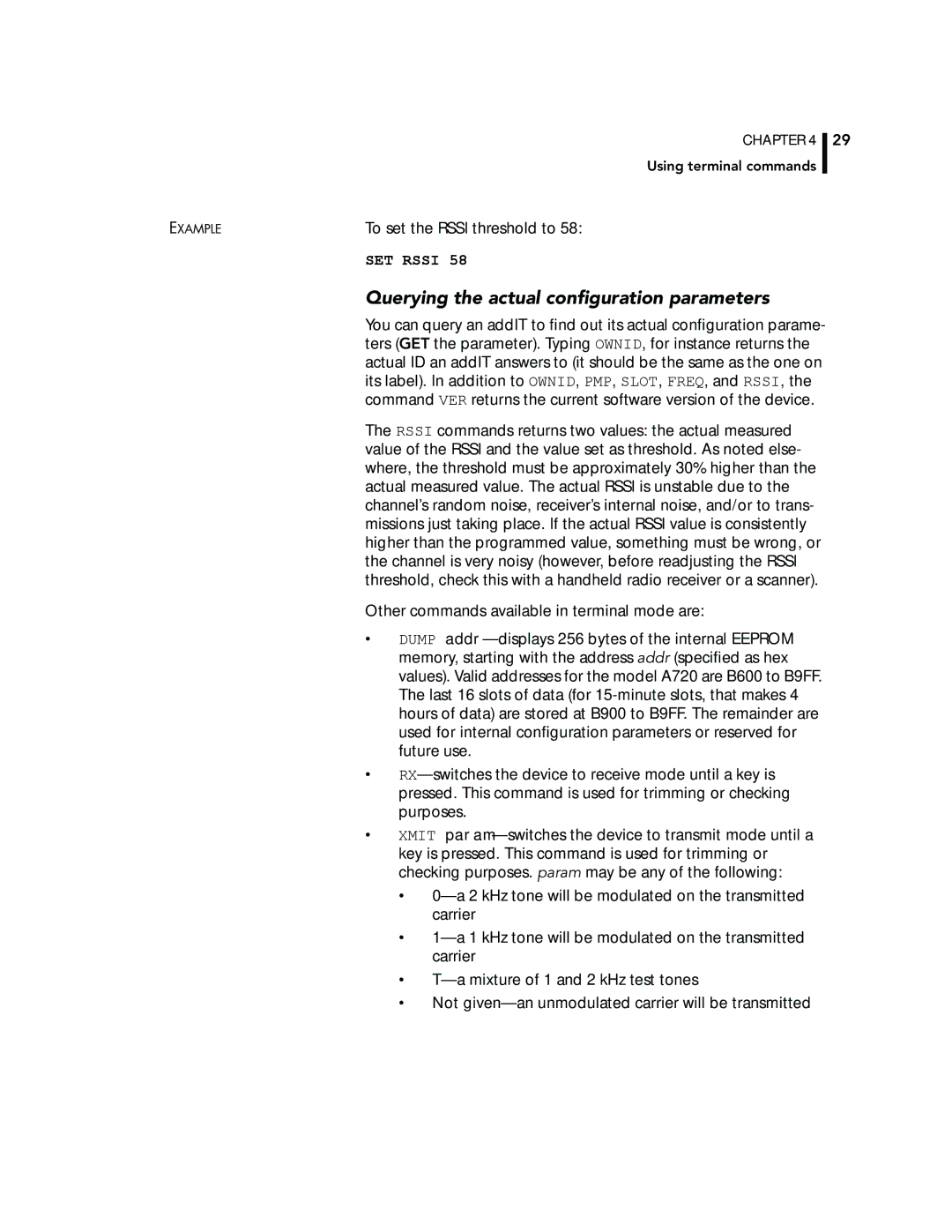CHAPTER 4
Using terminal commands
29
EXAMPLE | To set the RSSI threshold to 58: |
| SET RSSI 58 |
Querying the actual configuration parameters
You can query an addIT to find out its actual configuration parame- ters (GET the parameter). Typing OWNID, for instance returns the actual ID an addIT answers to (it should be the same as the one on its label). In addition to OWNID, PMP, SLOT, FREQ, and RSSI, the command VER returns the current software version of the device.
The RSSI commands returns two values: the actual measured value of the RSSI and the value set as threshold. As noted else- where, the threshold must be approximately 30% higher than the actual measured value. The actual RSSI is unstable due to the channel’s random noise, receiver’s internal noise, and/or to trans- missions just taking place. If the actual RSSI value is consistently higher than the programmed value, something must be wrong, or the channel is very noisy (however, before readjusting the RSSI threshold, check this with a handheld radio receiver or a scanner).
Other commands available in terminal mode are:
• DUMP
•
• XMIT
•
•
•
• Not
